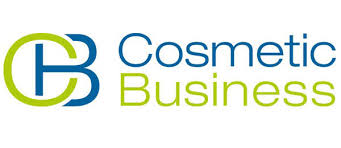
Ecovia Intelligence will be hosting a panel at Cosmetic Business, hosted in Munich on 4-5th June in Munich.
The panel will cover the natural & organic cosmetics market trends & opportunities. It will take place at the Innovation Corner (Hall 4) at 240pm on Wednesday 4th June.
Cosmetic Business is the leading trade show for the cosmetics industry in Germany. Organised by Leipziger Messe GmbH, this is the 20th anniversary of the event. Taking place at the MOC Veranstaltungscenter in Munich, it covers all sectors of the cosmetics industry, including perfumery, cosmetics, body and hair care products, equipment for hair and beauty salons, fitness centers, and solariums, as well as fashion accessories and jewellery.
Come and visit us at stand XX
More details on Cosmetic Business are on the website

